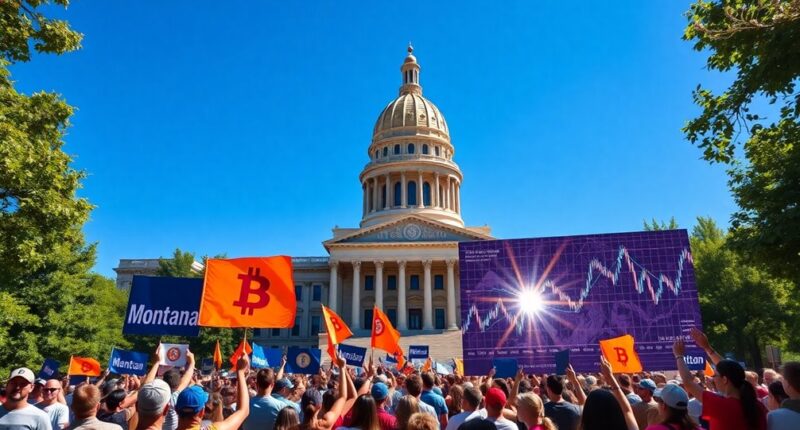Montana's proposed $50 million Bitcoin Reserve Bill signals a pivotal shift towards embracing the cryptocurrency landscape. By taking this bold step, the state aims to attract tech companies and boost job creation. It's not just about the money; it's about positioning Montana as a key player in the evolving digital economy. What implications could this have for local businesses and the state's economic future? The answer might surprise you.

As Montana considers its legislative future, the absence of specific cryptocurrency regulations, such as a Bitcoin reserve fund, raises questions about its potential in the digital economy. While the recent introduction of Montana Senate Bill 260 on February 3, 2025, marks a step towards addressing cryptocurrency, it doesn't specifically mention Bitcoin or any reserve fund. This leaves you wondering how serious the state is about harnessing the benefits that could come from crypto investments.
Take a look at Missouri, which has already introduced House Bill 1217 to create a "Bitcoin Strategic Reserve Fund." This initiative sets a precedent, showing how other states recognize the economic potential of cryptocurrencies. In contrast, Montana seems preoccupied with altering service district boundaries, sidelining the discussion on crypto. Without specific legislation aimed at establishing a Bitcoin reserve fund, Montana might miss out on significant economic opportunities.
Imagine a scenario where Montana embraces a cryptocurrency reserve. The economic benefits could be substantial, attracting tech companies and investors who are keen on blockchain technology. This could lead to job creation in sectors like software development and financial services, helping diversify Montana's job market. Moreover, establishing a Bitcoin reserve could enhance state revenue through appreciation of Bitcoin, providing additional financial resources for public services.
However, you should also consider the risks involved, as investing in cryptocurrencies comes with market volatility that could impact the state's finances.
Implementing a Bitcoin reserve isn't just about legislation; it requires a robust technological infrastructure. You'd need secure blockchain systems to manage transactions, alongside strong cybersecurity measures to safeguard against hacking. Digital wallets would play a crucial role in storing and managing cryptocurrencies, while fast transaction speeds would be essential for efficient operations.
There's also the energy consumption aspect, as the energy-intensive nature of cryptocurrency mining could strain Montana's energy resources.
Looking globally, many countries are integrating cryptocurrencies into their financial systems, presenting Montana with an opportunity to align itself with these trends. The U.S. is experiencing increased adoption of cryptocurrencies, with certain states exploring their use in government operations.
International cooperation on cryptocurrency regulation could further help standardize practices, making it easier for Montana to navigate this complex landscape.









